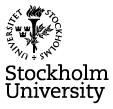Dr Fischer on Challenges of Ecosystem Management
Dr Günter Fischer will on November 22, 2000, hold the seminar" Food and Water: Challenges of Ecosystem Management".
This is referred to as the Agro-ecological Zones (AEZ) methodology. For the Global AEZ assessment the FAO/UNESCO Digital Soil Map of the World has been made the reference for constructing a land surface database comprising of grid-cells at 5´ latitude/longitude.
AEZ output includes general agro-climatic characterizations of temperature and moisture profiles, and time-series of attainable crop yields for major food and fiber crops. The results from Global AEZ have been examined to highlight areas where irrigation can make a significant contribution to land productivity.
Individual grid-cells were marked according to the potential impact of irrigation on extents of suitable land and production of cereals, and were aggregated according to impact classes by regions and countries. The information contained in these data sets forms the basis for several further AEZ applications.
Examples are: the quantification of land productivity, the estimation of extents of land with rain-fed or irrigated cultivation potential, the occurrences of environmental constraints to agricultural production, the identification of potential ‘hot spots´ of agricultural conversion, and the possible geographical shifts of agricultural land potentials as result of changing climate.
Furthermore, the AEZ results provide a biophysical backbone for establishing an integrated agricultural production function, a key component in IIASA´s approach to linking the economy and environment in regional land-use analysis. The basic structure of the agricultural production relations consists of an output function and an input response function, linked by means of an agricultural output index.
The specification of the agricultural production function assumes that the representative farmer in each region determines optimal output and input mixes across all suitable crops and key input factors, including irrigation. The specification captures farmers´adaptation to variations in natural conditions. It incorporates detailed agronomic knowledge, and thus also provides an ideal means for assessing the impacts of climate change.
Results from empirical estimation strongly support the view that it is both possible and worthwhile to integrate information from biophysical process understanding within an economic model.
About Günther Fischer
Günther Fischer is project leader and research scientist at the International Institute for Applied Systems Analysis (IIASA).
Since 1995, he has been leading a major research project on Modeling Land Use and Land Cover Changes in Europe and Northern Asia (LUC). A primary research objective of this project is the development of a GIS-based modeling framework, which combines economic theory and advanced mathematical methods with biophysical land evaluation approaches to model spatial and dynamic aspects of land and water use.
The geographical focus of the study has been China. He participated in the formulation of a general equilibrium framework and the implementation and application of a global model of the world food systems, known as Basic Linked System.
He was a major contributor to two studies of IIASA's Food and Agriculture Programme: On welfare implications of trade liberalization in agriculture; and on poverty and hunger. He participated in multinational research projects on climate change and world agriculture, producing projections of the world food system for a range of climate change scenarios.
Since 1996 he has been serving on the Scientific Steering Committee of the joint LUCC Core Project/Programme of the IGBP-IHDP, and is leading the LUCC Focus 3 office at IIASA concerned with developing an improved framework for regional and global land use studies.
Time
Vacancies | Contact | Environmental policy | Cookies
Stockholm Resilience Centre
Stockholm University, Kräftriket 2B | Phone: +46 8 674 70 70 | info@stockholmresilience.su.se
Organisation number: 202100-3062 | VAT No: SE202100306201


